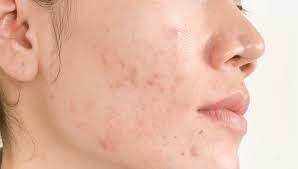Acne can be annoying. Well, it is being said that stress is a common cause of acne and is sometimes disregarded when it comes to face care. Stress acne differs from ordinary acne in that it has distinct symptoms and patterns that are closely related to your mental and physical health. By being aware of stress acne, you can better control it and take preventative measures to keep your skin clear and healthy. Let’s know how you can prevent stress acne from showing up on your tender skin.
What is Stress Acne?
You blame it on hormones doing their regular thing when you wake up to a small, partially developed pimple. Stress acne is caused when high amounts of stress cause certain hormones to rise.The “stress hormone,” also called cortisol, causes the sebaceous glands to generate more oil. Breakouts may result from clogged pores caused by this extra oil. Additionally, stress affects your body’s capacity to combat inflammation and repair, which exacerbates acne and delays its resolution.According to doctors, hormonal pimples occur one at a time, therefore stress may be a contributing factor if you’re getting clusters of pimples all at once.
Signs You Are Having Stress Acne
- Affects Your T- Zone: Stress acne can form anywhere on your face, especially in the T-zone (forehead, nose, and chin), in contrast to hormonal acne, which typically appears in particular places like the chin or jawline.
- Skin Texture Change: A rough texture that is visible and palpable is frequently the result of the skin becoming lifeless, losing its natural lustre and glow, or developing an uneven, grainy feel.
- Itchiness and Redness: By breaking down the skin barrier and causing hormones like cortisol to be released, stress can aggravate and redden skin. Prolonged stress can exacerbate skin disorders like psoriasis or eczema, which emphasises the significance of stress reduction and skincare.
- Cysts that hurt: As a result of clogged and infected pores, severe acne causes uncomfortable cysts that may cause swelling, discomfort, and even scarring. Both physical appearance and emotional health may be impacted by this disorder, which can affect the face, back, and chest.
- Acne Scars: Stress can result in unintentional acne picking or scratching, which can harm the skin and create pigmentation problems and scars.
How To Manage Stress Acne
- Manage Stress: Stress management is the first key to preventing stress acne. Reduce your stress levels by engaging in stress-reduction practices like yoga, mindfulness, deep breathing, or meditation.
- Make sure to properly wash your face: Acne prevention and reduction greatly depend on how well you clean your face. It aids in skin cleansing and pore unclogging to remove dirt, dead skin cells, and excess oil. Washing too much, too, might exacerbate acne.\Apply a moisturiser- Using a moisturiser is essential even if you have a lot of acne since dry skin will again create too much sebum, which will result in pimples.
- Avoid the sun: In addition to drying out your pimples, sun exposure can lead to long-term issues. Acne may result from it telling your body to release more oil. For acne treatment, use a non-comedogenic sunscreen that is appropriate for your skin type and stay hydrated at all times!
- Avoid Makeup: Makeup can cause breakouts by clogging your pores. To prevent irritation of your skin, utilise a non-comedogenic and fragrance-free foundation if you still wish to use such products. Before you go to bed, make sure you take off all of your makeup.
- Right Nutrition: Limit your intake of high-glycemic meals and dairy products, which can make acne worse for certain people. Instead, eat a balanced diet full of fruits, vegetables, and whole grains.
- Oral Drugs: For more severe cases of acne stress, a dermatologist may recommend isotretinoin, hormonal therapies, or oral antibiotics.
Stress acne is a prevalent but treatable illness that has a direct correlation between the health of your skin and your mental state. A balanced diet, regular skincare, and stress-reduction strategies are examples of simple lifestyle adjustments that can have a big impact. Keep in mind that a healthy mind is the first step towards clear skin. Maintaining your emotional and mental health will benefit your skin!


